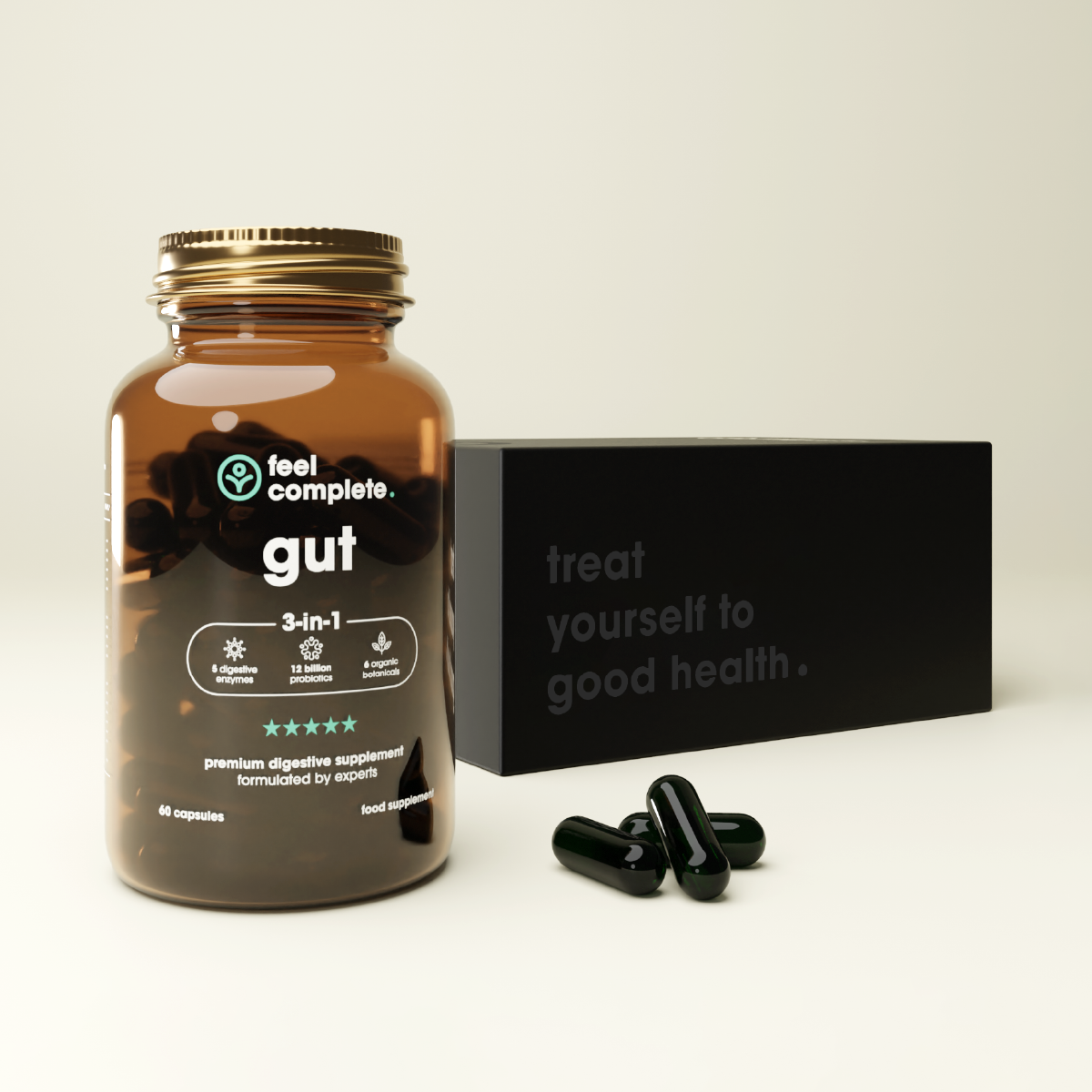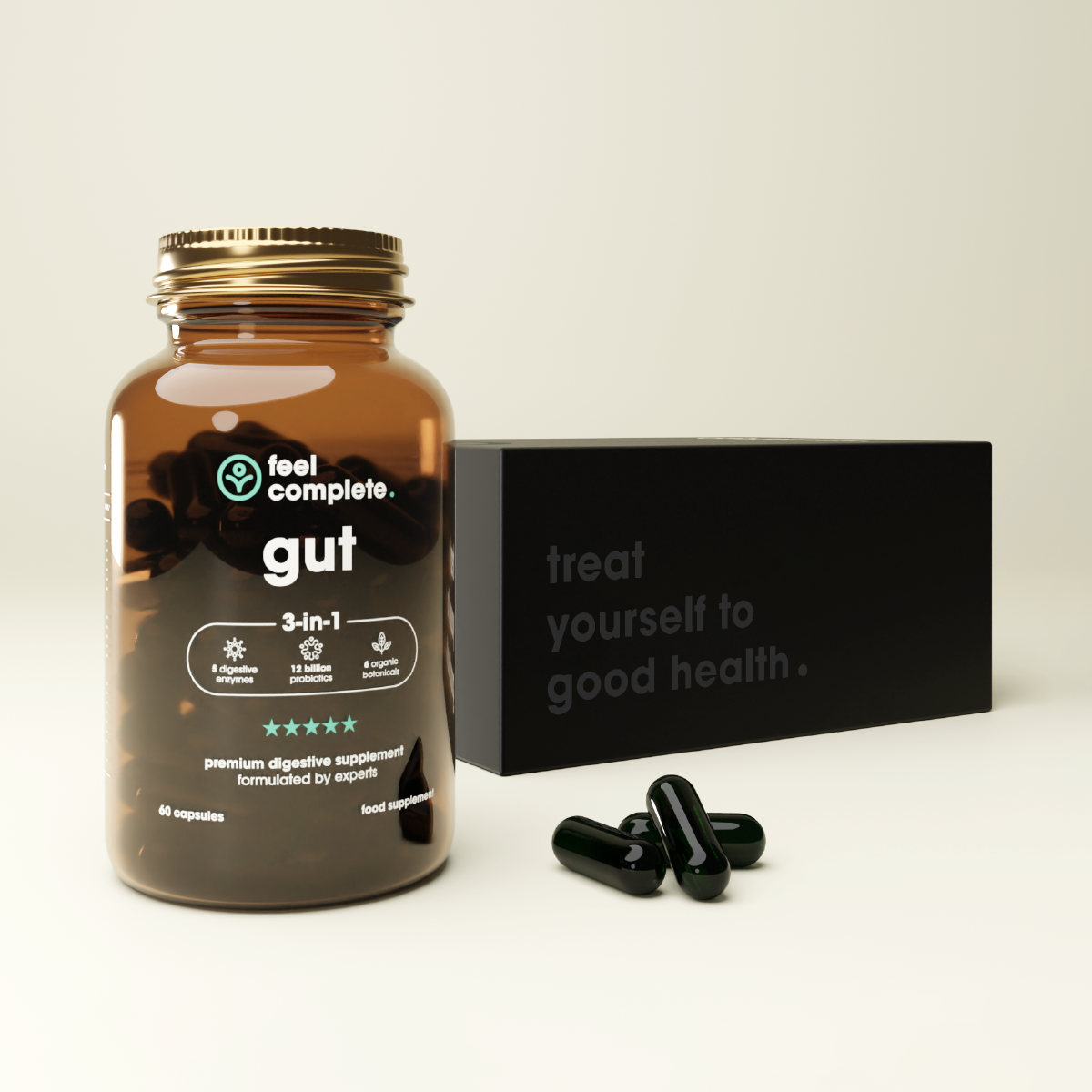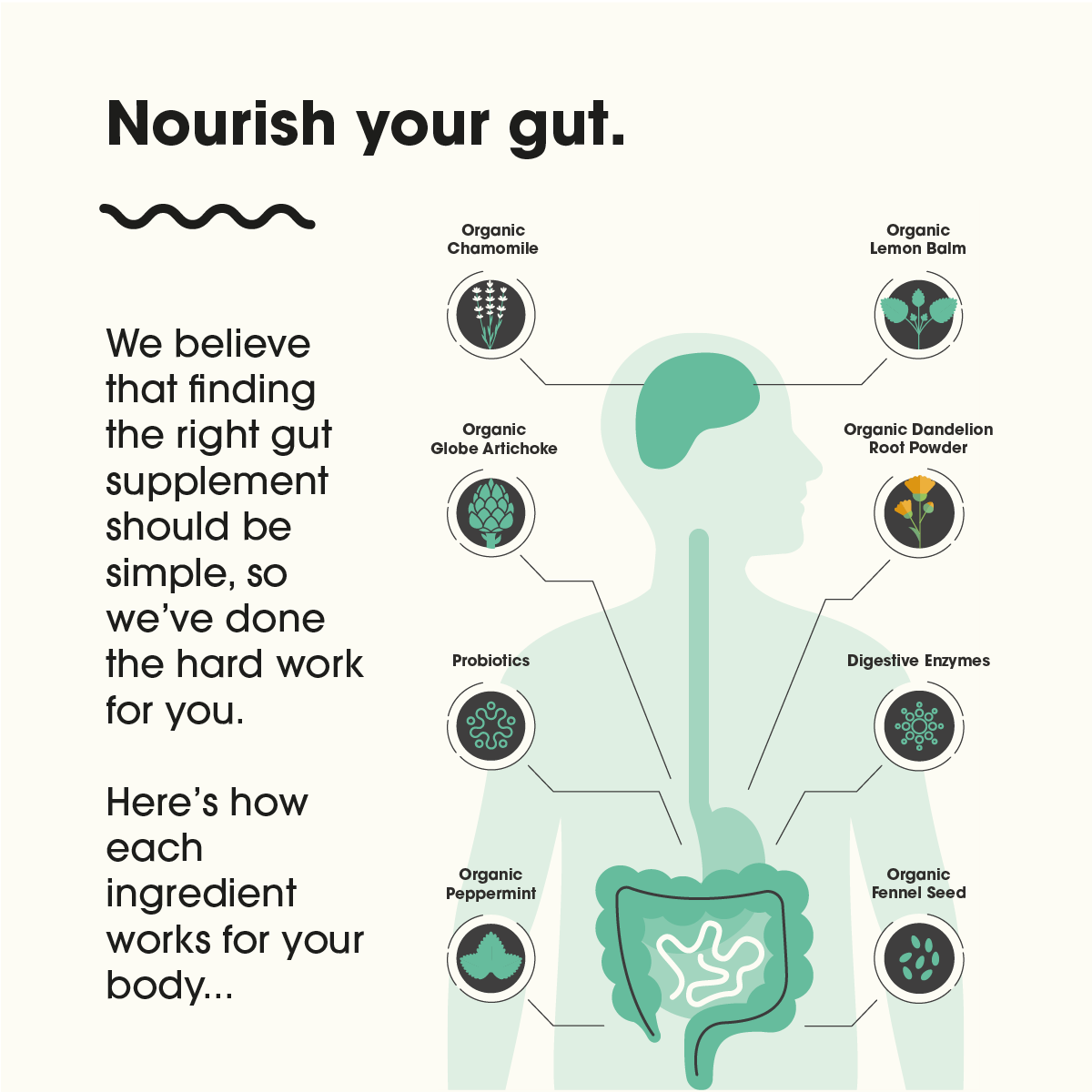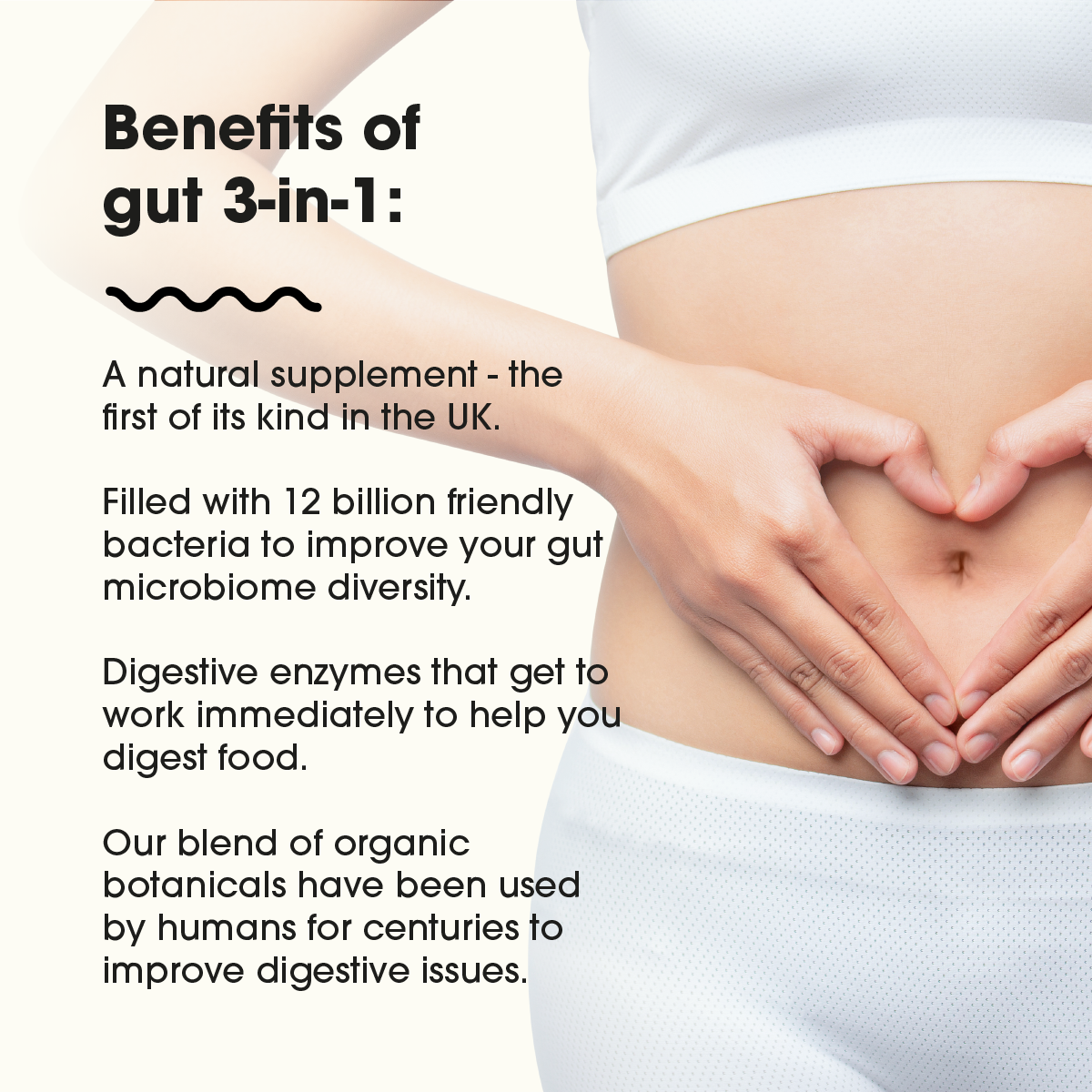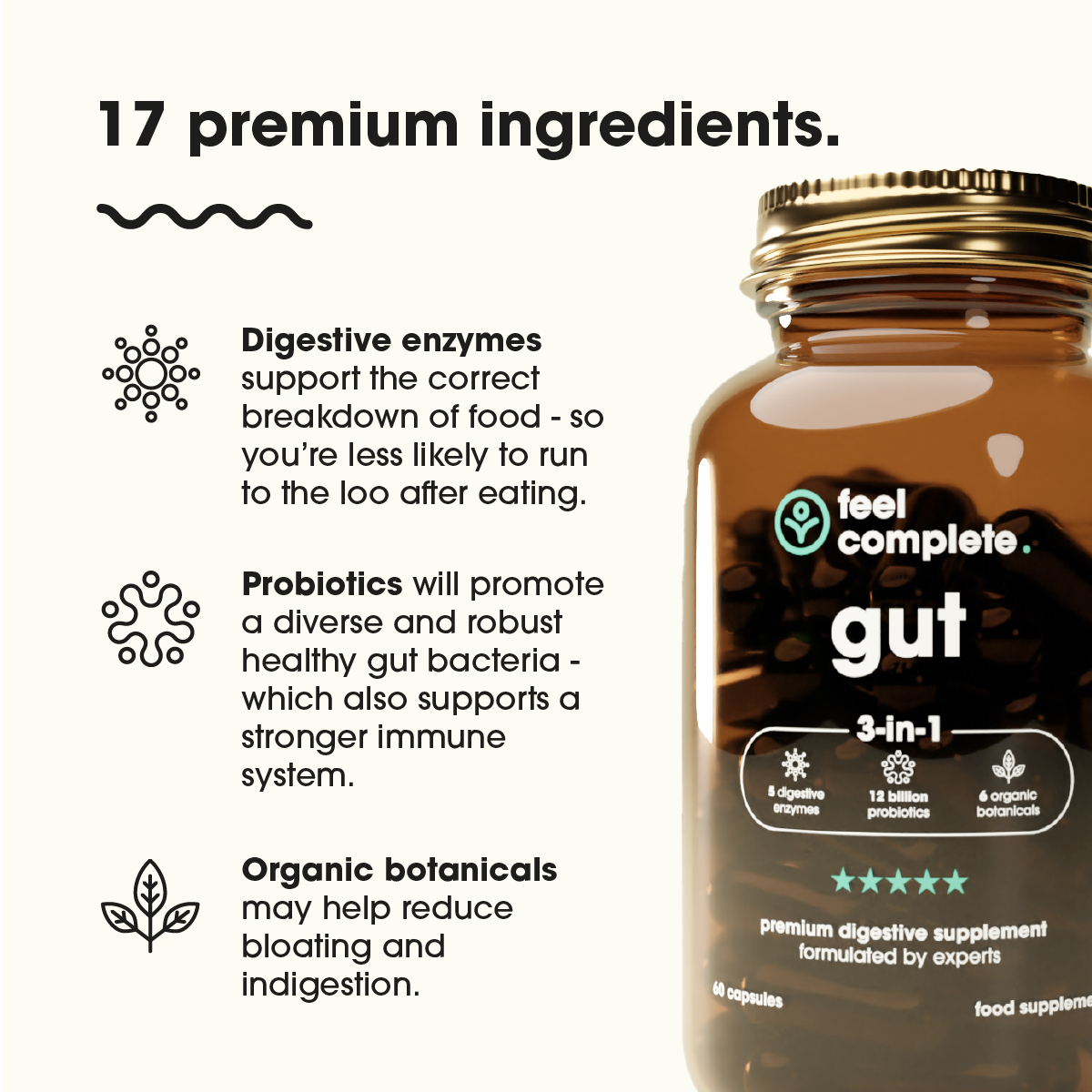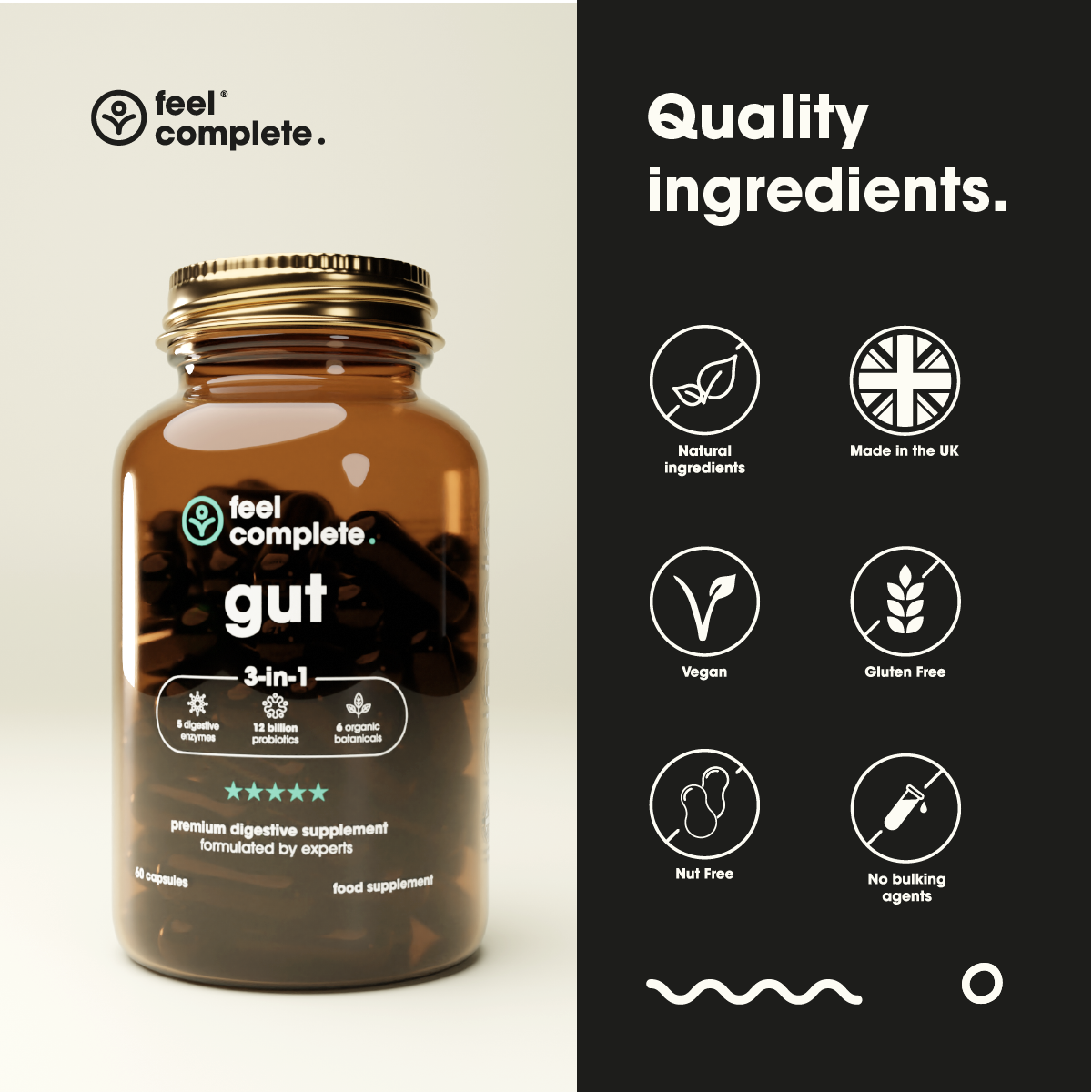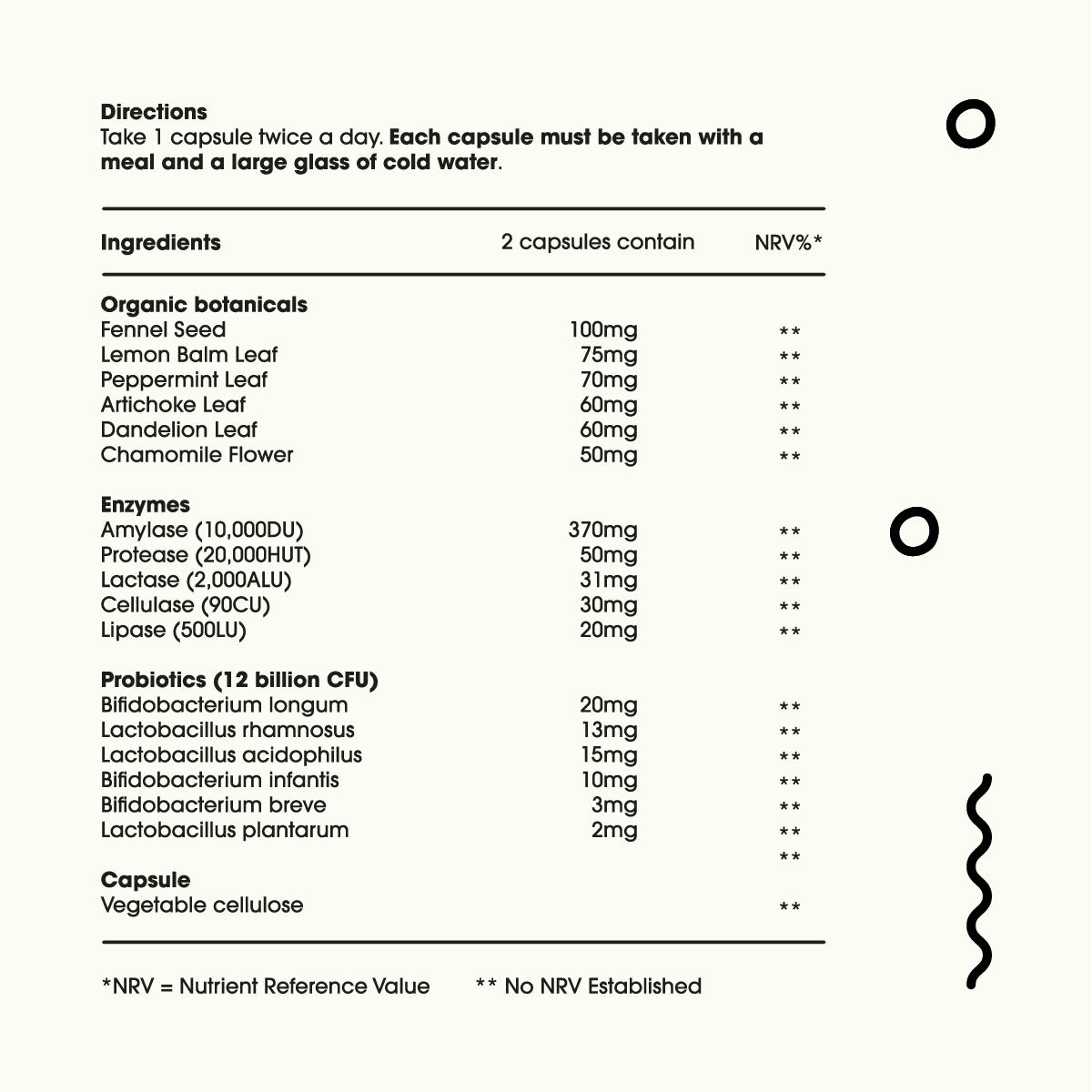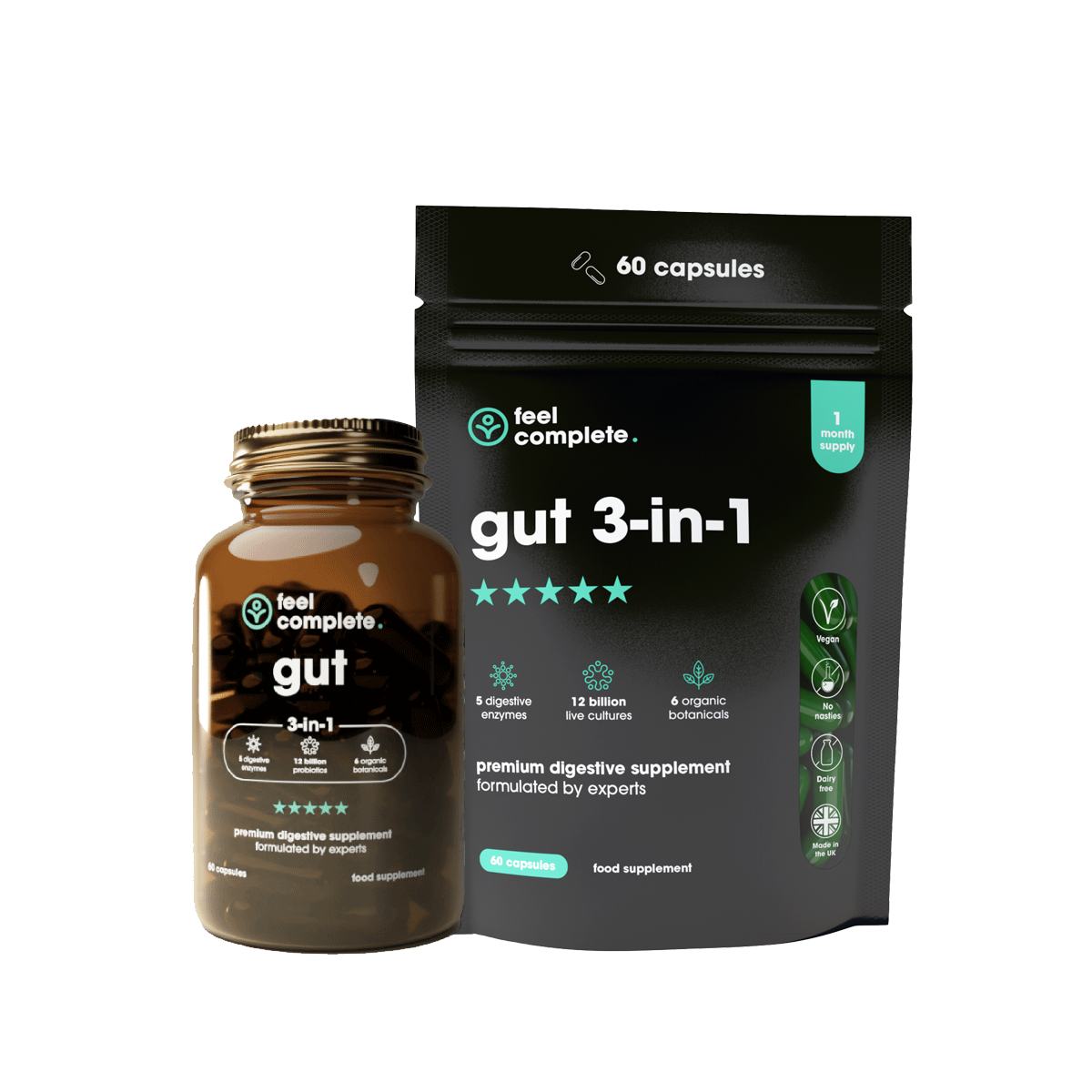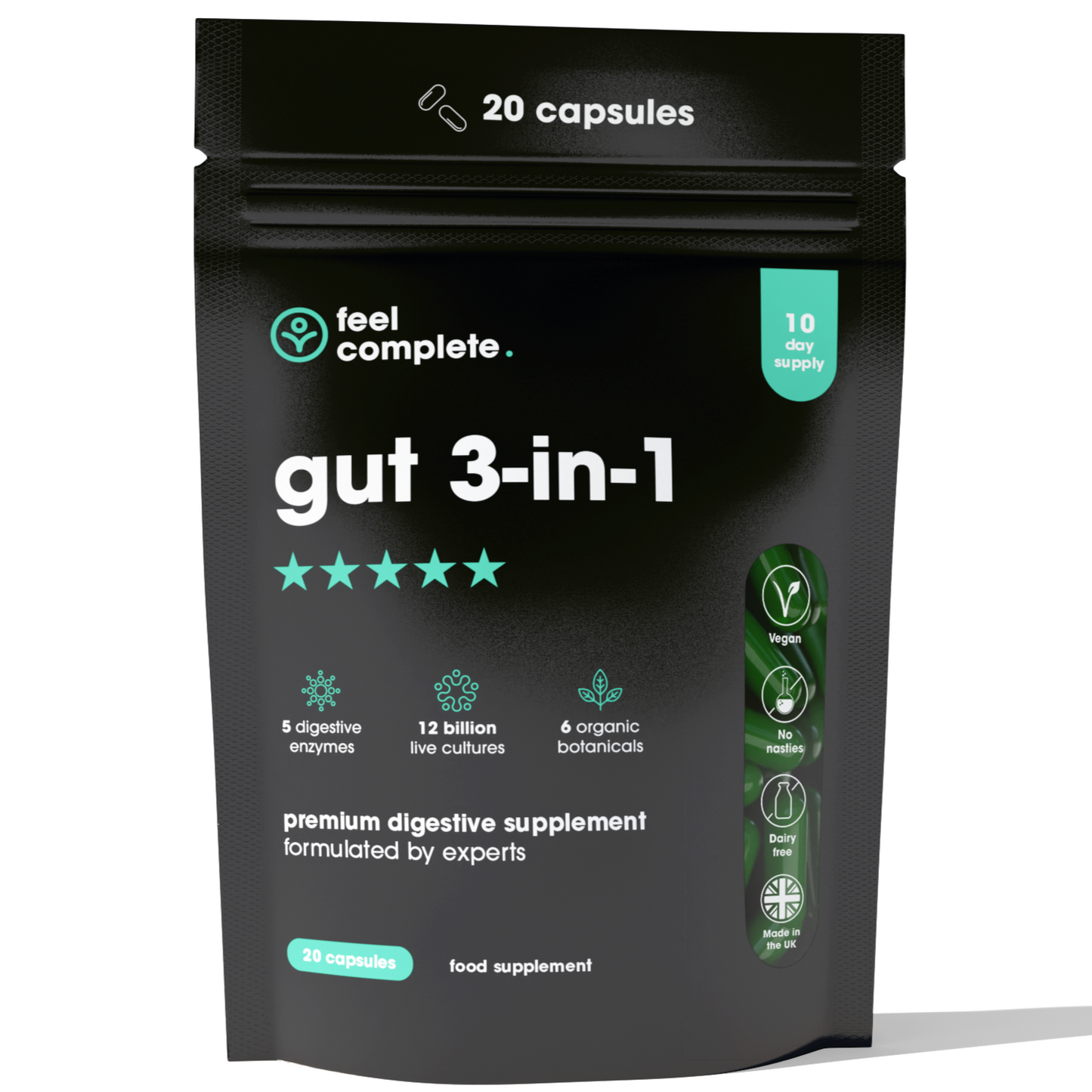Winter is calling and so are the celebrations, time off work and the common cold and flu that come with this time of year. So how can we best look after ourselves?
Aside from wrapping up nicely (it's chilly out there!), the best thing you can do is prioritise your gut health.
Why? Because 70% of your immune system is in the gut and these connections play a vital role in the building blocks for immune health.
In short, a healthy gut means a strong immune system. 💪
And this all starts with our gut microbiome. This is the home of the trillions of microorganisms that live in our digestive tract. Like any city or town, you have a population of good bacteria and bad bacteria as well as beneficial and non beneficial yeasts.
Research shows that a healthy gut is when there is a healthy balance between these good and bad bacteria and yeasts, which regulate our immune homeostasis. (1)
So looking after those critical good gut bacteria is the best defence against disease-causing pathogens such as bad bacteria, yeasts, parasites, etc.
Did you know that there is an extensive amount of research showing that bad bacteria in the gut leads to a condition called “leaky gut”? This can decrease immune function, which as you can imagine, is not a good thing!
Now that you know the link between gut health and immune health, let's take a look at symptoms before we look at ways you can support your immune health this winter.
Symptoms of an under-functioning gut:
- Bloating
- Constipation
- Loose stools (diarrhoea)
Symptoms of an under-functioning immune system:
- Frequent colds
- Sore throats
- Cuts and bruises taking longer to heal
- Tiredness and fatigue
Your gut, immune system and what you eat
Whether you know it or not (and even like to admit it or not!) you are what you eat. This means that your choice of food directly affects your gut and immune health.
To give you an example, consider this study over a 10-week period.
In the study, two groups were instructed to follow two different diets. One group went on a high fibre diet and the other, a diet high in fermented foods containing a probiotics diet.
Researchers found that the group that went on the high-fibre diet had a more stable gut diversity whereas the group that went on the probiotic diet, the diversity of their microbiome increased and inflammation decreased. (2)
Showing us again how essential it is to have a wide variety of foods in our diet for better gut health.
Your gut microbiome has many functions and one of these functions is to ferment the fibre we consume and produce short-chain fatty acids (SCFAs), which are anti-inflammatory.
These SCFAs are important for managing our immune response to bad pathogens, which are organisms that can cause disease. Remember, the more variety of microbes you have in the gut, the better the immune response will be.
To give you another example, studies show that a good mix of prebiotic fibres and probiotics (to top up levels of good bacteria) provide a stable gut diversity, which is important for reducing inflammation markers as well as stronger gut microbiome. (3)
Have you tried out 3-in-1 gut supplement? Formulated with 17 all-natural ingredients, your gut will and brain will thank you!
If you're ready to reap these amazing benefits, go ahead and add some gut-healthy prebiotics into your daily diet including leeks, onion, garlic, asparagus, bananas, oats and apples. Replace your coffee consumption and instead enjoy chicory root coffee, which is decaffeinated chicory and contains a high amount of probiotics(it also taste amazing!).
Your gut and immune system will also thank you if you add at least 1 -2 servings a day of rich probiotics foods to support this building of good bacteria.
These include foods such as kimchi, miso, sauerkraut, kombucha, traditional cheeses, yoghurt and kefir. Try and mix what you consume to support diversity. In other words, the more diverse your diet, the richer your gut microbiome diversity will be.
Harmonise your gut microbiome with some probiotics
Poor diet, chronic stress, antibiotics and poor sleep are some of the things that can compromise your gut and immune health. So in addition to the good-for-your gut- diet we mentioned, you can also support your gut and immune health with a good quality multi-strain probiotic supplement, which studies show help.(4)
When looking for probiotics, only go for those that are over 10 billion CFUs per daily amount as research supports this amount. And always take them with food (5). If you want to repair your gut or simply want it to be the best it can be, why not check out our 3-in-1 premium digestive supplement? It contains 6 powerful probiotic strains and has a daily CFU of 12 billion.
Colourful rainbow
A plate of food should be bursting with colour and give you variety in taste, nutrients and benefit. For example, phytochemicals are health promoting nutrients found in vegetables, fruits, grains and other plants.
You also want to add warming soups and slow cook them all the way at this time of year. Add some homemade, or fresh bone broth which is packed full of collagen.
And this is super important as it helps the connective tissue repair of the gut. Slow cooking also means you get to add many different vegetables, which add more goodness to your soup or broth.
Vitamin D
No doubt you know about the importance of vitamin D, especially during the winter months in the UK. Sadly, it's very common for many of us to be deficient in this vitamin.
To give you an idea, roughly 20% of people in the UK have low levels of vitamin D and a whopping 60% have insufficient levels.(6) But it's not only lack of sun exposure that's responsible for these low levels of vitamin D.
Want to know what we mean? Instead of eating vitamin D rich foods, many of us eat a diet of ultra processed foods and drinks (think soft and energy drinks), which means that we are getting real calories but empty nutrients!
So your body would be lacking vitamin D because of lack of sunlight exposure but also because of lack of foods rich in this vitamin. Double the trouble!
After all, vitamin D is important for gut health as it can reduce inflammation and strengthen the gut barrier. Want to know another cool thing about vitamin D? It has receptors that are in most cells in the immune system!
As a rule of thumb, it's recommended to supplement with 400 IU daily (
from October till April) to support the immune, gut and overall health.
Top tips
When buying probiotic-rich fermented foods, only buy from the refrigerated section as these have a higher amount of live probiotics. Though they cost a little more, they're well worth the investment.
Buying probiotics supplement:
- Quality matters so make sure they have research supporting the formula
- Culture count should be over 10 billion CFUs per serving
- No added binders or talc
Sleep quality: When it comes to gut health, the quality of your sleep matters. Research shows that how well or poorly you sleep affects both the health and diversity of your microbiome. Who would have thought that your beauty sleeping is also good for your gut health?!
Take advantage of the winter months by sleeping earlier. And during the day, spend as much as time as you can outside to support your natural circadian rhythm or internal clock.
Garlic: Most people try to avoid garlic because let's face it, it doesn't do much for your breath! But hear us out. Garlic is a powerful herb and a prebiotic that feeds the gut microbes. The fact that it's packed full of gut boosting immune system nutrients should make you (temporarily) ignore the smell!
Foods to add into daily diet: Add foods that are high in the antioxidant called Quercetin, as this reduces inflammation as well as supports the barrier function of the intestines. Foods high in this antioxidant include berries, cherries, apples, green tea, red onions grapes, buckwheat etc. (7)
Fun fact
30 minutes of exercise, 3-5 times a week can support reduction of inflammation and supports positive changes in the gut microbiome. If you do your exercises outside, then this will also help support your circadian rhythm - which is key for your wake/sleep cycle. By doing this, you will be hitting two birds with one stone!







